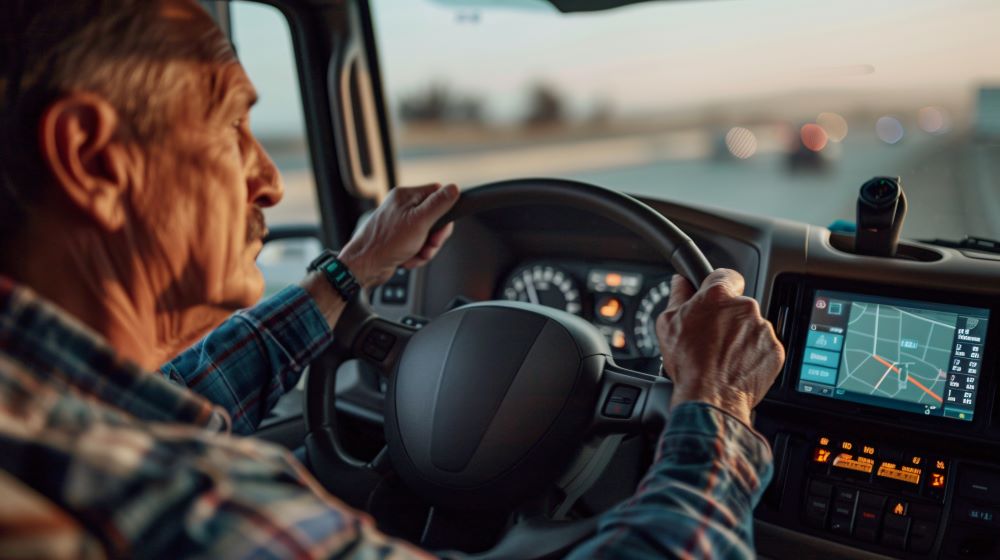Commercial truck accidents often have catastrophic consequences for others on the road. Because passenger vehicles are smaller and lighter than semi-trucks, their occupants frequently bear the brunt of traffic collisions.
Thankfully, commercial trucks have one feature that makes investigating crashes easier: the “black box.” This post discusses the role of black box data in truck accident investigations, including what black boxes can measure and how that information can help legal claims.
The Capabilities of Black Boxes
Black boxes have several more formal names: event data recorders (EDRs), electronic logging devices (ELDs), and electronic control modules (ECMs). No matter the name, their purpose is to record information on the truck’s operations.
Black boxes continually log data such as the following:
- MPH
- Braking and acceleration
- Sudden changes in direction
- Wheel turning
- Driver seat belt usage
- Airbag deployment
- Engine RPM
- Cruise control status
- Mechanical problems
- Daily or monthly truck activity
- GPS location
While modern cars also have recording systems, commercial black boxes log a more comprehensive set of data. Trucking companies use black boxes to monitor driver safety, track the vehicle’s status, and record details in the event of a crash.
Black Boxes in Accident Investigations
Black boxes are useful for internal trucking company purposes, such as vehicle maintenance, driver training, and insurance claims. They are also invaluable to all parties in truck accident investigations.
Black box data helps lawyers, insurance companies, and others in the following areas:
Accident Reconstruction
Traffic accidents can be chaotic — especially if more than two vehicles are involved. You and the other driver(s) may disagree on what occurred, you may not remember what happened (particularly if you were badly injured), or the events leading up to the accident may not be clear.
Black box data can help reconstruct the crash timeline and sequence of events. Was the trucker speeding just before the collision? Perhaps the driver failed to brake, or the truck had mechanical problems contributing to the accident.
Evidence Collection
The role of black box data in truck accident investigations doesn’t stop with accident reconstruction. It can also help collect other types of evidence for your truck collision claim.
For example, the black box tracks drivers’ compliance with federal hours of service (HOS) regulations. HOS data can tell you whether the trucker followed mandatory rest periods and whether driver fatigue may have contributed to the crash.
Because the black box provides an objective record of events, it is particularly useful for supporting your claims and defending yourself against counterclaims. This can help lawyers, insurance adjusters, juries, and others resolve conflicting witness testimony of what happened and who is to blame.
Legal Liability
Once you’ve untangled the sequence of events, you have a better idea of accident causation and liability. In other words, who was at fault for the crash, and who is legally responsible for damages? Black box data can help you discern whether the driver or trucking company committed any negligence.
Determining fault is essential in any state, but it is particularly crucial in North Carolina. Because of the state’s strict contributory negligence rules, you cannot generally collect from the other party if you are partially responsible for the accident.
That means if the other party is 99% at fault but can prove that you are even 1% to blame, they don’t owe you any compensation. For this reason, working with an experienced attorney is vital in a North Carolina truck crash claim.
Black Box Access and Data Preservation
While the role of black box data in truck accident investigations cannot be overstated, it is not always easy to secure. Truck accident victims often face the following hurdles:
- Access: Black box data typically belongs to the trucking company, and they may be reluctant to give it to you. You will likely need a court order to access the information.
- Technology: Different black box systems have different technological configurations, which require specific knowledge and tools to extract and interpret. A damaged black box may need to go to a special lab for extraction.
- Time: Like other surveillance systems, black boxes often write over old data. Trucking companies may also lose (or destroy) this information, making timely claims essential.
Need Legal Help After a Truck Accident?
Now that you know more about the role of black box data in truck accident investigations, you may be looking to file a truck accident claim. Paynter Law can help. We work to protect the rights of North Carolina accident victims and help them seek compensation for their injuries.
Call us today at 844-472-9683 or contact us online for a free consultation with an experienced truck accident attorney.

